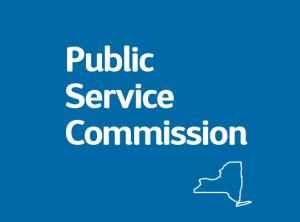New York, Pennsylvania Eye Ongoing Deployment

Both Pennsylvania and New York have taken steps in recent weeks to facilitate continued expansion and availability of broadband communications services in rural and less populated areas. In New York, Governor Andrew M. Cuomo touted initiation of Round III of the state’s New NY Broadband program, under which $341 million will be invested to assure that every citizen has access to high-speed Internet service. The governor said that Round III is the latest phase of the plan, which first commenced in 2015 and is considered the standard-bearer program throughout the country for extending broadband technology to every corner, regardless of population.
Governor Cuomo reported that since the program’s launch, almost 2.5 million locations have benefitted from high-speed Internet upgrades provided by plan funding. The governor stated that some of the Round III money will bring broadband service to more than 122,000 additional premises. According to the governor, the program has awarded grants to 122 broadband projects over the last three years and has established public/ private partnerships with 34 different companies thereto.
The governor noted that Round III of the program will be able to leverage up to $170 million in additional support through the federally administered Connect America Fund (CAF). The CAF was created to provide subsidies to communications carriers offering service in areas characterized by low populations and/or difficult geography, making the cost to serve significantly higher. Overseen by the Federal Communications Commission (FCC), the CAF makes funds available to eligible carriers on an annual basis.
In New York, however, the dominant carrier, Verizon, had declined the CAF monies, such that the FCC could have redirected those funds to other states. But Governor Cuomo announced that various New York officials had been able to convince the FCC to release the monies to New York anyway, to be used in conjunction with the New NY Broadband plan.
The governor observed that the CAF support will go a long way in helping New York attain its goal of assuring statewide Internet download speeds of at least 100 megabytes per second (Mbps). That minimum speed is in stark contrast to the threshold for CAF eligibility, which is just 10 Mbps.
Meanwhile in Pennsylvania, the Public Utility Commission provided notice that unlike its neighbor to the north, Pennsylvania had been denied the use of CAF monies that had been offered to, but declined by, Verizon Pennsylvania. Although the commission expressed deep disappointment that the FCC had rejected Pennsylvania’s request to assign Verizon’s $140 million allotment from the CAF to the state, it nevertheless expressed hope that another mechanism could be found by which to preserve and expand broadband access in the more remote regions of the state. The commission observed that most of the state’s smaller independent telephone companies had accepted the CAF support tendered by the FCC. However, it said, Verizon’s refusal to take any funding from the CAF meant that at least 31 counties would stand to lose a minimum of $1 million each for their broadband expansion programs.
In maintaining that there still is a glimmer of hope for yet obtaining CAF monies, the commission remarked that the FCC has indicated plans to conduct an auction for Verizon’s unclaimed funds. In that respect, Commissioner David W. Sweet stated that “The FCC may have closed a window on one initiative, but the door is still open — at least a crack — for other efforts to preserve significant funding for rural broadband projects.”



